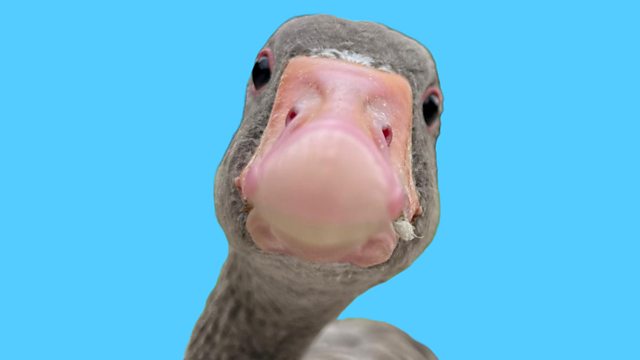Do birds understand us?
Is it possible to communicate with our feathered friends? Listener David can mimic bird calls, but he wants to know if his chirps have any meaning.
CrowdScience listener David is a bird whisperer.
On his family farm in Guinea, he would mimic the call of the black-headed weaver. He could replicate it so well that the birds would fly in close, curious to find out who was calling. David has been wondering if he was actually communicating with the weaver.
In the foothills of the Austrian Alps is a research hotspot with a curious history. It was here that a scientist first began studying birds in their natural environment. That work continues today with Andrew Katsis from the University of Vienna, who knows the local flock of greylag geese by name. His research shows that animals aren’t just anonymous members of a group, they have personalities, relationships, and the ability to recognise one another.
But what else do birds know? Thomas Bugnyar, professor of social behaviour and animal cognition, spends his time trying to get inside the mind of ravens. His work suggests they can understand their surroundings, make rational decisions, and even solve complex problems.
Plus, we meet Ellie, a cockatoo with the ability to use a touchscreen computer to “talk.” She has a working vocabulary of more than 1,500 words. And when she presses a button, it would appear she is not just pecking at random, she is choosing purposefully, responding in ways that suggest birds may not only understand us, but communicate back.
Presenter: Caroline Steel
Producer: Minnie Harrop and Harrison Lewis
Series producer: Ben Motley
(Photo: Close up of Greylag goose with blue background Credit: Harrison Lewis, ��ѿ��ý)
Last on
More episodes
Previous
Featured
-
.
Broadcasts
- Fri 19 Sep 2025 19:32GMT��ѿ��ý World Service
- Fri 19 Sep 2025 22:32GMT��ѿ��ý World Service Europe and the Middle East
- Mon 22 Sep 2025 01:32GMT��ѿ��ý World Service except Americas and the Caribbean
- Mon 22 Sep 2025 04:32GMT��ѿ��ý World Service Australasia, Americas and the Caribbean, South Asia & East Asia only
- Mon 22 Sep 2025 08:32GMT��ѿ��ý World Service
- Mon 22 Sep 2025 12:32GMT��ѿ��ý World Service Australasia, East and Southern Africa, News Internet & West and Central Africa only
Podcast
-
![]()
CrowdScience
Answering your questions about life, Earth and the universe


